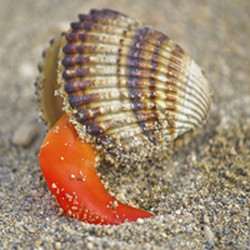Training researchers in calcification
Calcification is a key physiological process in the development and growth of many marine organisms. It also plays an important role in structuring marine habitats and contributes to bio-geochemical cycling. The aim of the 'Calcification by marine organisms' (CALMARO)(opens in new window) project was to train young researchers in the mechanisms of calcification and processes involving biogenic carbonates. Biogenic means they are produced by living organisms or biological processes. Bio-calcification involves the production of crystals of calcium carbonate, which are used by marine plants and animals to build shells and skeletons to protect themselves. Changes in environmental conditions, such as global warming, which may affect ocean mixing and nutrient cycling, and ocean acidification can influence bio-calcification. The impact of surface-ocean warming and acidification on marine organisms is uncertain, prompting the CALMARO training network to study this in detail. The project provided a supportive research environment that enabled fellows to investigate calcification processes and sensitivities to changes in environmental conditions. Studies extended from the cellular level through to the organism and population levels, and on to the ecosystem, regional and global levels. CALMARO's training programme was supported by three pillars: personalised programmes, network activities and dissemination. The training network offered unique scientific expertise in the field of calcification and included secondments to other institutions. This also increased appreciation of the differing scientific cultures in the participating countries and provided training activities that surpassed those of individual institutions. Scientific results indicated that at the cellular level calcification is influenced by ocean acidification and temperature. Organisms, including commercially important species such as bivalves and fish, are most sensitive during their early life stages. Much greater resilience was found at the ecosystem level, although long-term effects on their composition are still not clear. However, biodiversity increases resilience. The effect of a changing ocean environment on calcification was more difficult to track and predict at the regional and global scale. Project findings are important for marine conservationists, policymakers, industry and spatial planners. They will help to protect the marine environment and promote the sustainable use of the resources it contains.







